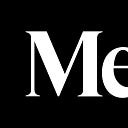What we overlook in the name of self-help
A few years ago, I worked with someone who’d been editing personal essays professionally for years. She was good at her job. She knew how to turn a story that might not be that interesting into something lots of people would want to read. I remember one draft we were passing back and forth. I thought it was pretty good; she didn’t.
“It doesn’t have an outward turn,” she said — ”outward turn” being our internal lingo for “when the author finds meaning or wisdom in something that happened to them.” This can be an observation or a piece of advice. Ideally, you want it to be something highlight-able, something people will remember. It’s usually the type of thing you can only learn through living.
Last week, I came across an essay that contains a bunch of these. Adeline Dimond, a federal attorney, traces the rise of the $5.6 trillion wellness industry in her friends’ lectures about losing weight (among other things). “Almonds! Microsteps! Collagen! More protein! Sleep hygiene! Mouth taping! Boundaries! MANIFESTING!!” Dimond’s friends chant, spouting the language of self-improvement. The specific genre in question here (I believe) is Tedcore, a type of self-help we find everywhere these days — it combines the language of therapy with grandiose theories of human behavior. And while it can be helpful, it can also feel hollow. I didn’t understand why until I saw it through Dimond’s eyes. This quote stuck with me:
I recognize that it’s not fair to expect the self-help industry to answer the Big Questions. It doesn’t even pretend to do that, really. It just sort of ignores the Big Questions, by creating smaller problems for us to solve, distracting us. Who cares that your dad died too early, if there’s acne to vanquish and a skin-care routine to adopt?
I’m not against self-help. I’ve read Atomic Habits. I’ve read Carol Dweck’s Mindset. One of my favorite books is this one, which is basically self-help for writers. I think describing “self-help” or “wellness” as a series of hacks or superficial routines minimizes what it can be. At the same time, I was deeply moved by Dimond’s attempt to wrestle with the Bigger Questions we often ignore in the name of bettering ourselves. Sometimes you don’t need to improve anything, Dimond reminds us. Sometimes you can just… exist.
From the archive
Software engineer David Goudet draws one lesson from years of interviewing candidates for senior roles: Knowledge and skills are overrated; resilience, persistence, and just being a good person are underrated. Goudet cites a study supporting this theory: “When exposing them to new problems, children who were praised for their persistence tended to choose more difficult problems to solve, and children who were said to be smart ended up performing worse on the problems they solved.”
Something to try this weekend
Reread one of your favorite books. Rewatch one of your favorite movies. Revisit one of your favorite places. As Ryan Holiday writes, “The books are the same, but we change between reads. The world changes, too.”
Written by Harris Sockel
Edited and produced by Scott Lamb & Carly Rose Gillis
Every weekday, the Medium Daily Edition offers useful, human perspectives to help you become a better reader, writer, and thinker.
Do you want to receive this as an email? Sign up here.
Want to browse the best of Medium? Explore staff picks.
Unlock a library of unlimited knowledge and insight with a Medium membership.
Questions, feedback, or story suggestions? Email us: tips@medium.com

